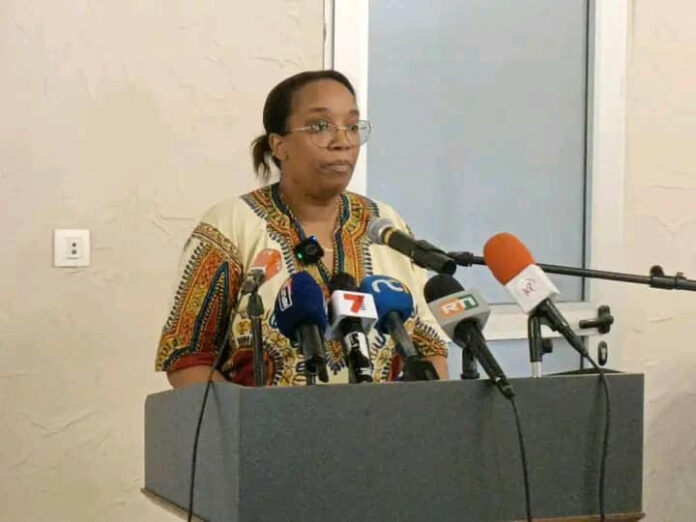In a move that signals an escalation of political tensions, former Ivorian President Laurent Gbagbo has rejected any form of electoral compromise and called for a strategy of “democratic and peaceful actions” to oppose what he describes as an unconstitutional power grab by the ruling RHDP party.
The declaration, delivered on his behalf by spokesperson Mme. Habiba Touré, in Abidjan on Thursday, September 18, 2025 comes in the wake of the Constitutional Council’s decision on September 8 to exclude Gbagbo and 54 other candidates from the upcoming presidential election.
The Constitutional Council, the country’s highest constitutional authority, validated the candidacies of just five contenders for the October vote, including that of incumbent President Alassane Ouattara.
The exclusion of major opposition figures, including Gbagbo and Tidjane Thiam, has been met with widespread condemnation from the opposition, who view the move as a deliberate attempt to clear the path for President Ouattara’s controversial bid for a fourth term.
During consultations with other excluded political figures, Gbagbo said two primary options were considered.
The first, a so-called “precautionary plan” to collectively back one of the approved opposition candidates, was ultimately dismissed.
According to the statement, this option failed to gain traction among both the political elite and the general public, and the approved candidates do not represent the main opposition parties.
Instead, Gbagbo has thrown his support behind a strategy of “democratic resistance.”
He framed the conflict not as a rivalry between politicians, but as a fundamental struggle for the survival of the nation’s democracy against a regime he accuses of seeking to turn Côte d’Ivoire into a “personal kingdom.”
“Our true adversary is not this or that candidate: it is the RHDP regime, led by Mr. Alassane Ouattara, who seems to want to transform Côte d’Ivoire into a personal kingdom,” the statement read.
Gbagbo’s address also contained a powerful warning, drawing parallels between the current situation and the country’s painful past.
He reminded President Ouattara that their previous electoral confrontation, which led to a violent crisis in 2010-2011, was a direct result of disrespecting the constitution.
With the death of former President Henri Konan Bédié, Gbagbo and Ouattara remain the only two living former leaders of the country, a reality that, Gbagbo argued, places a unique historical responsibility on them to ensure a peaceful transition.
The former president’s call to action appeals directly to the Ivorian people, stressing that ultimate power lies not with institutions or arms, but with the public.
“One should not believe that one is strong because one temporarily holds institutions and weapons,” the statement concluded. “One is never stronger than the people.”
The news of Gbagbo’s planned resistance comes amidst a climate of growing political instability.
The opposition has repeatedly criticized the Independent Electoral Commission and the electoral list as lacking transparency and credibility.
With the presidential campaign now officially underway, the path ahead for Côte d’Ivoire appears fraught with uncertainty as the opposition prepares to mount a formidable challenge to a fourth Ouattara term.






















